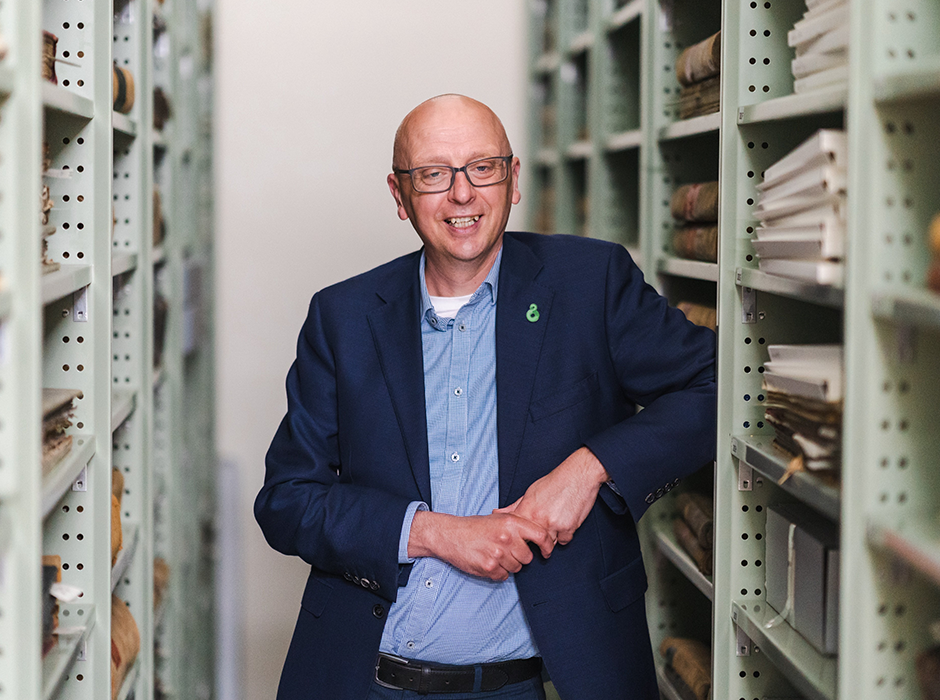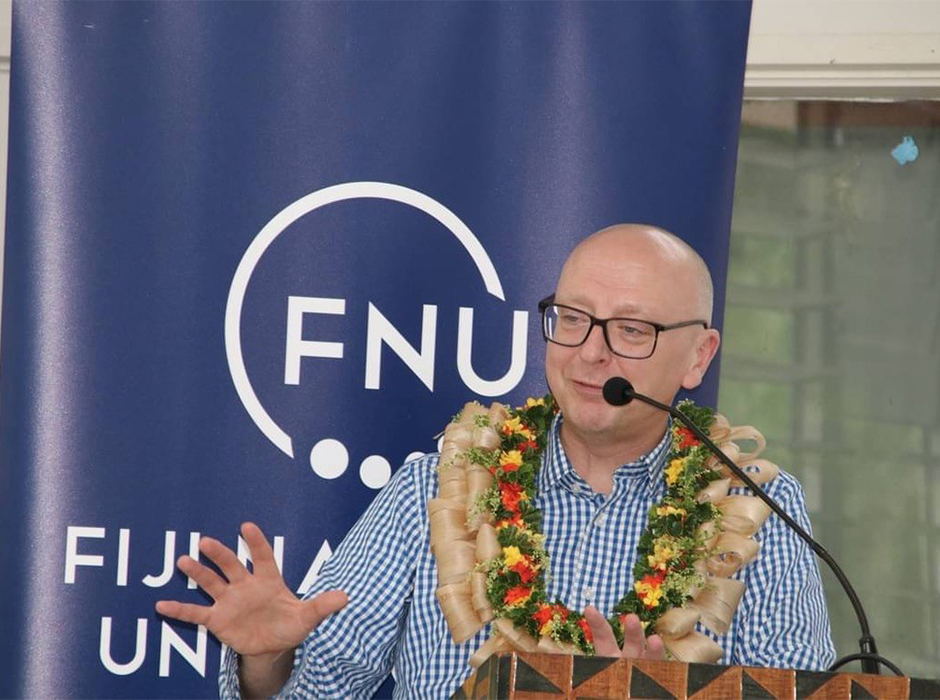
Professor Tony Ballantyne has returned to the History Programme after three years as Deputy Vice-Chancellor (External Engagement).
After three years as Deputy Vice-Chancellor (External Engagement) Professor Tony Ballantyne is returning to his first love – history. Here he talks with Laura Hewson about his time in the DVC role and what the future holds for him.
Professor Tony Ballantyne has a lot of history with the University of Otago.
He first arrived here as a student in 1990 and completed a Bachelor of Arts (Hons) in 1993. He then won a Prince of Wales Scholarship to undertake his PhD at Cambridge and held faculty positions at the National University of Ireland, Galway and the University of Illinois, Urbana-Champaign before returning to Otago as a lecturer in the history programme in 2002.
With the exception of a year teaching at Washington University, in St. Louis in the United States, he has since made Otago his home.
“I grew up in South Dunedin and have a deep appreciation of the University’s importance to our city and region. As an undergraduate I had great teachers in History and they posed questions that I am still grappling with!”
Over the years Tony has served as Head of Department – history and art history and Pro-Vice-Chancellor Humanities. He became Deputy Vice-Chancellor (External Engagement) in 2021 – a time that was far from business as usual, he says.
“The University has been going through deep-seated and multi-faceted change for the past three to four years. Some of that change is very difficult but some dimensions of it are very exciting.”
One particular challenge as the DVC (External Engagement) was restoring international connections after COVID-related border closures.
“I led the International Reset and Recovery Project, which is about rebuilding our international network and recruitment pathways for international students. This has been about developing new approaches, new partnerships, new ways of doing things and I hope they’re going to bear some very significant fruit in the years to come.
“Our international students greatly enrich our classrooms and our campus and they’re going to be vitally important in the future.”
Tony, who has long been committed to international education, found the international component of the role to be especially meaningful.
“For me it’s been very special because I’ve had a long-standing engagement with places like India and China, I’ve worked in the United States and Ireland, I did my PhD in England and I’ve always been deeply engaged with the Pacific.
“I think of myself as having had a global career, so it was wonderful to be able to work with institutional partners around the world, finding points of common interest, exploring the opportunities for our institutions to work together and to create new opportunities for our staff and students to gain experience and skills and to engage with new ways of thinking and doing.”

Tony Ballantyne speaking at the Natabua campus of Fiji National University in July 2023. Photo: Fiji National University.
Building and maintaining key relationships outside of the University, both internationally and closer to home, has been a major part of the role, he says.
“One of the biggest highlights was the everyday interaction with our institutional partners, our alumni and the friends of the University – having the opportunity to talk to them about developments here and hearing their reflections on their time as students or former staff and their aspirations for the University in the future.
“That’s a pretty amazing part of the job and it is really at the heart of role.”
Tony also led the University’s Web Transformation Project, helped establish the Six60 scholarship programme and championed the Tuakiritaka rebranding project, which was officially launched this month.
“I understand that people care really deeply about the University and that there are some very strongly held views about this project, but for me Tuakiritaka is special because in part it’s about the history of the University and our location in the world, but it’s also about our aspirations for students and staff for the future.”
In terms of his own future, Tony decided to step down from the DVC role due to health concerns.
“I have a condition that has become challenging and, in particular, it is going to significantly compromise my eyesight in the medium term. Against the backdrop of that, I’ve decided to return to history to complete some outstanding projects.
“I’ve been working on a book on Captain Cook – how New Zealanders have made sense of him and how we’ve argued about him for the last 200 years.”
Another major project is an intellectual biography of Herries Beattie, a popular historian and journalist, and a collector of Ngāi Tahu tradition.
“He’s one of the leading figures who shaped the stories we tell about ourselves in this part of New Zealand,” Tony says.
“But most of all, I am excited to get back into the undergraduate classroom. I love teaching and exploring the past with students. My own academic journey started as a history undergrad here, so I am delighted to be heading back to where it began for me.”